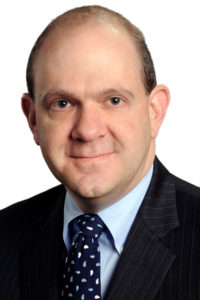
The CHEST Annual Meeting has consistently specialized in hands-on training, and this year, attendees will see even more interactive sessions in the Learn by Doing-focused program.
“More so than ever before, the annual meeting will incorporate hands-on simulation, team-based learning, and case-based sessions,” said CHEST 2018 Program Chair David A. Schulman, MD, MPH, FCCP. “Since we believe that the best way to incorporate new knowledge is to actually interact with it, this should help our members come away from CHEST with more knowledge than ever before.”
Last year, the program focused on team-based and patient-centered care, which will also be prevalent in this year’s educational portfolio. CHEST’s program incorporates the patient voice and offers more interdisciplinary sessions with faculty in diverse specialties as the importance of team-based learning and care continue to be recognized.
“Team-based learning gives small groups of attendees a clinical problem to solve and then has them work together before reporting their solution back to the larger audience,” Dr. Schulman said. “Learning from other attendees is one of the novel aspects of this format.”
CHEST is also introducing a novel approach for developing content this year. CHEST staff member, Jody Egel, brought the idea of implementing crowd-sourced sessions at this year’s meeting to elevate the attendees’ voice in program content.
The CHEST Planning Committee will bring several options for sessions that haven’t yet been incorporated into the meeting, potentially because it became of greater interest after the meeting content was finalized, Dr. Schulman said. Attendees will be able to vote on the content ideas, and the idea that gets the greatest number of votes will be converted into a full session during the later part of the meeting.
“This will give meeting attendees greater say in what we offer for education at CHEST, and we hope many of them will come to the session and share their ideas on the topic they choose,” he added.
CHEST’s GAMEs (Games Augmenting Medical Education) continue to grow in popularity. They help health-care professionals work through cases or medical procedures in a video game format by learning in a fun and competitive way.
“GAMEs are our opportunity to have attendees apply game-design thinking to get them better engaged in solving clinical problems,” he said. “The idea is that experiencing fun while learning will improve their retention of the content. By requiring learners to answer a question (instead of just listening to a speaker), we provide them instantaneous, individualized feedback. People feel great when they get something right, and they are more motivated to learn when they get something wrong.”
The GAMEs open Sunday in the Exhibit Hall.
In addition to full-day courses on leadership development and educational development, there will be 15 additional hours of content focused on improving the skill set of the clinician educator, and several other sessions focused on clinician burnout and implicit bias.
“Both of these critically important topics can never be overemphasized, and will be presented by national experts,” Dr. Schulman added.
San Antonio is a perfect setting for the meeting. The city boasts a temperate climate, a vibrant arts scene, plenty of history, and championship golf courses. Outside of the meeting, attendees can visit the Alamo—steps away from the River Walk—dine at one of the many award-winning European- and Mexican-influenced restaurants, and discover why San Antonio has been named one of the best cities for shopping. The weather should be top-notch in early October.
Participants can earn ABIM Maintenance of Certification points equal to the number of CME credits by engaging in learning. Credit is available for all general sessions and postgraduate courses. If you attend the entire CHEST conference, you’ll earn 34.75 hours of MOC credits toward the 100 you need for recertification.
“Although many parts of CHEST are new this year, the best part each and every year remains the chance to interact with and learn from experts in pulmonary, critical care, and sleep medicine from around the country,” Dr. Schulman said.





